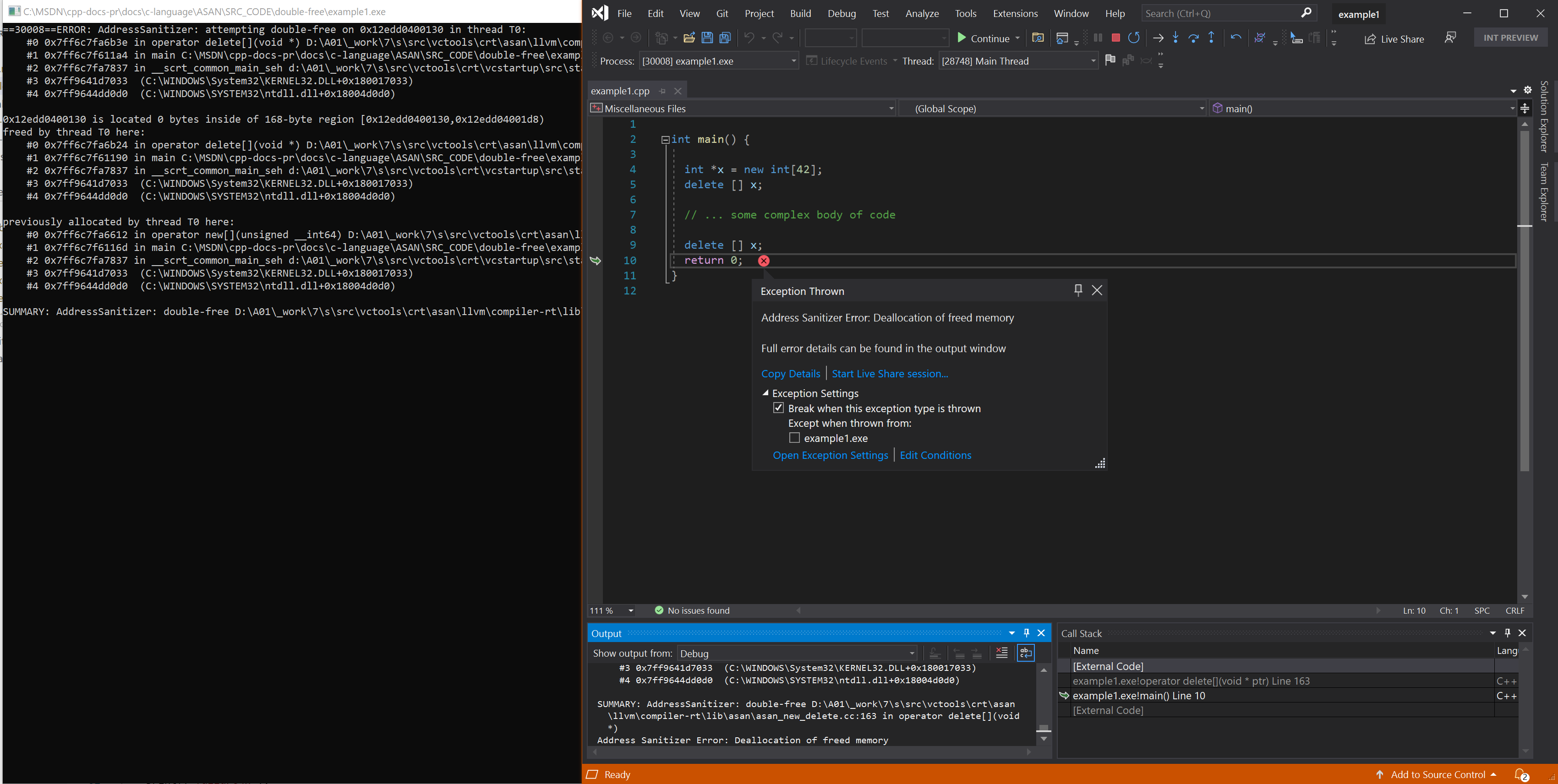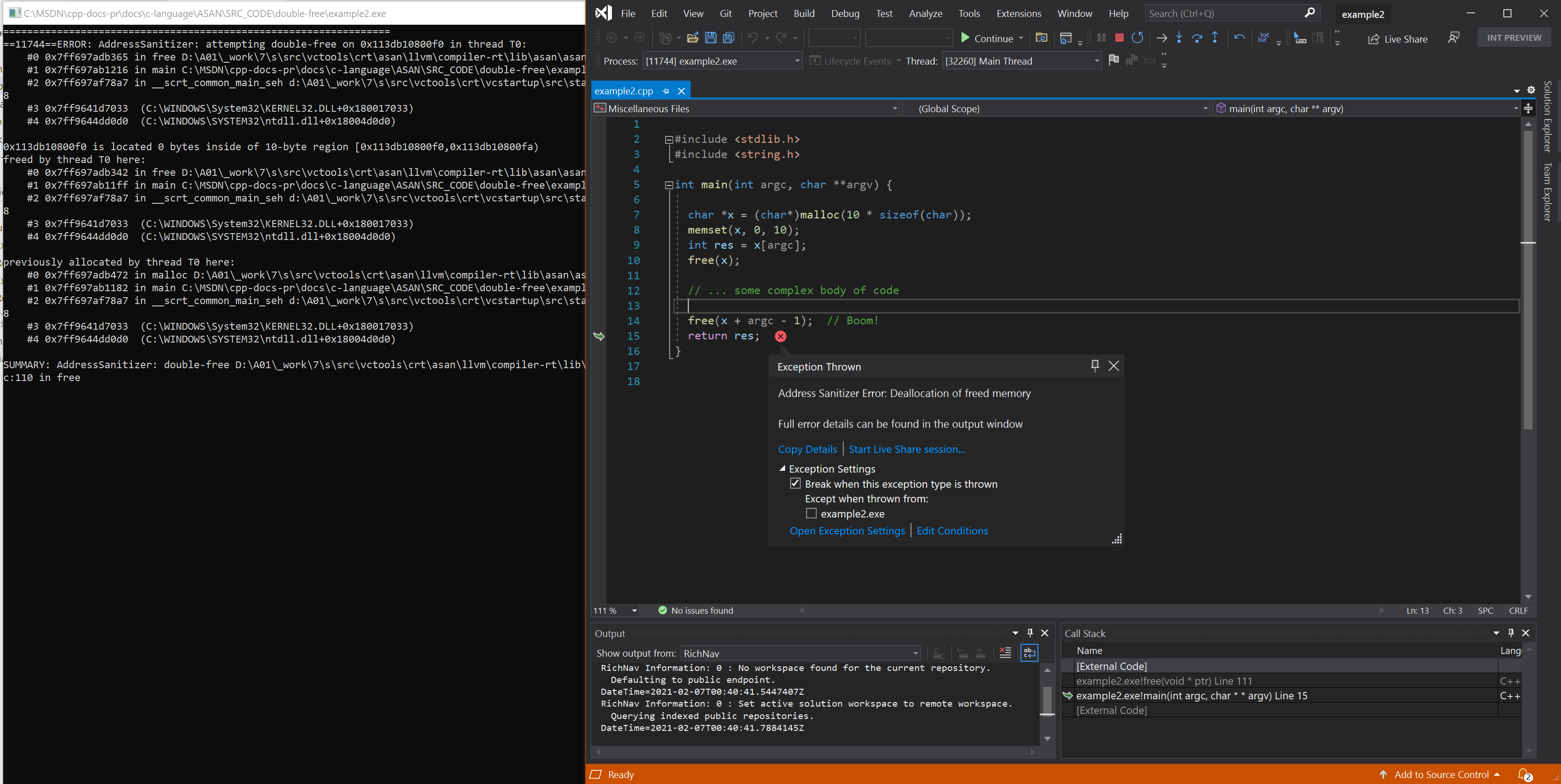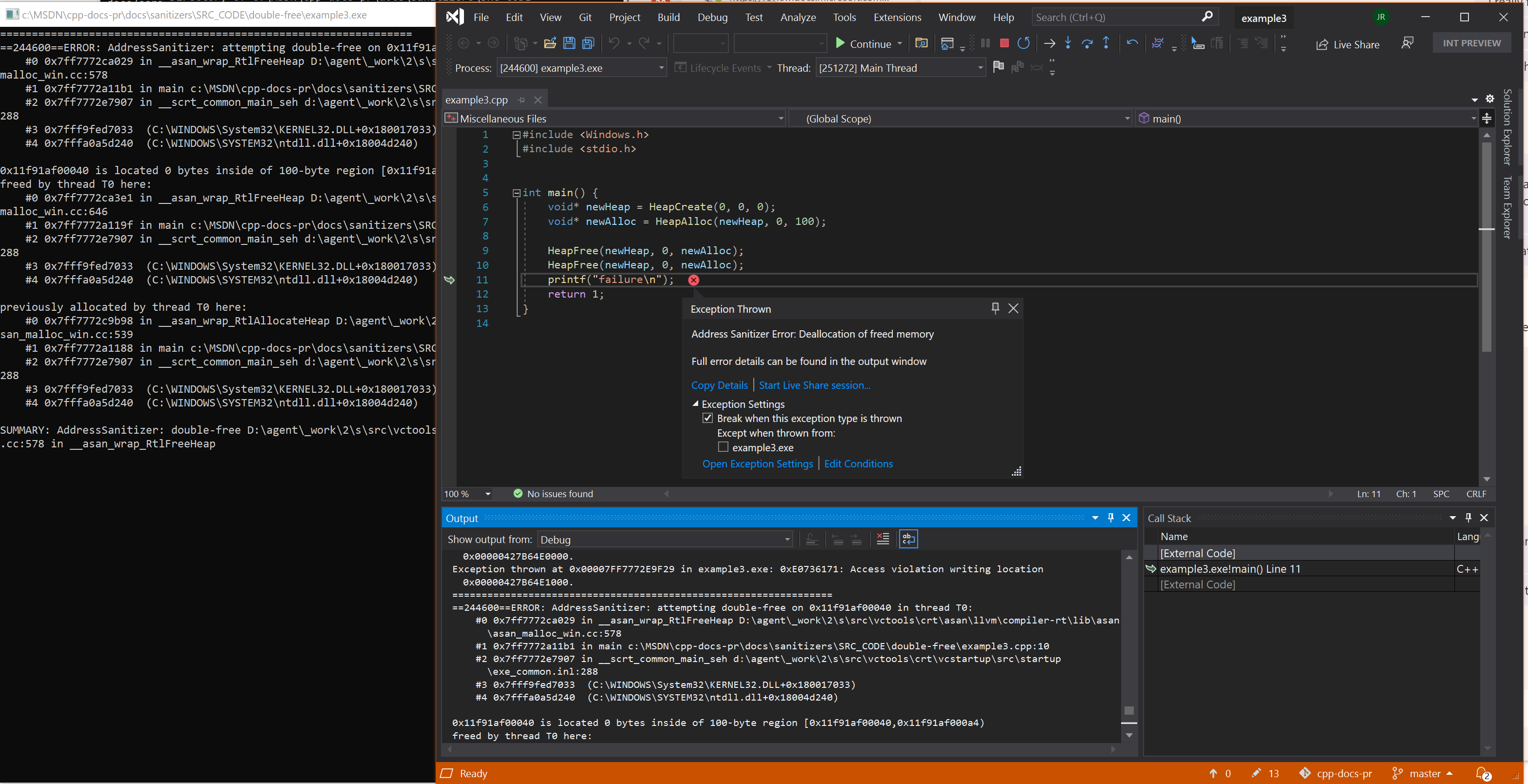エラー: double-free
Address Sanitizer エラー: 解放されたメモリの割り当て解除
C では、free を誤って呼び出す可能性があります。 C++ では、delete を複数回呼び出す場合があります。 これらの例では、delete、free、HeapCreate でのエラーを示します。
C++ の例 - ダブルの operator delete
// example1.cpp
// double-free error
int main() {
int *x = new int[42];
delete [] x;
// ... some complex body of code
delete [] x;
return 0;
}
この例をビルドしてテストするには、Visual Studio 2019 バージョン 16.9 以降の開発者コマンド プロンプトで次のコマンドを実行します。
cl example1.cpp /fsanitize=address /Zi
devenv /debugexe example1.exe
結果のエラー - ダブルの operator delete

'C' の例 - ダブルの free
// example2.cpp
// double-free error
#include <stdlib.h>
#include <string.h>
int main(int argc, char** argv) {
char* x = (char*)malloc(10 * sizeof(char));
memset(x, 0, 10);
int res = x[argc];
free(x);
// ... some complex body of code
free(x + argc - 1); // Boom!
return res;
}
この例をビルドしてテストするには、Visual Studio 2019 バージョン 16.9 以降の開発者コマンド プロンプトで次のコマンドを実行します。
cl example2.cpp /fsanitize=address /Zi
devenv /debugexe example2.exe
結果のエラー - ダブルの free

例 - Windows HeapCreate のダブルの HeapFree
// example3.cpp
// double-free error
#include <Windows.h>
#include <stdio.h>
int main() {
void* newHeap = HeapCreate(0, 0, 0);
void* newAlloc = HeapAlloc(newHeap, 0, 100);
HeapFree(newHeap, 0, newAlloc);
HeapFree(newHeap, 0, newAlloc);
printf("failure\n");
return 1;
}
この例をビルドしてテストするには、Visual Studio 2019 バージョン 16.9 以降の開発者コマンド プロンプトで次のコマンドを実行します。
cl example3.cpp /fsanitize=address /Zi
devenv /debugexe example3.exe
結果のエラー - Windows HeapCreate のダブルの HeapFree

関連項目
AddressSanitizer の概要
AddressSanitizer の既知の問題
AddressSanitizer のビルドと言語リファレンス
AddressSanitizer ランタイム リファレンス
AddressSanitizer シャドウ バイト
AddressSanitizer クラウドまたは分散テスト
AddressSanitizer デバッガーの統合
AddressSanitizer エラーの例